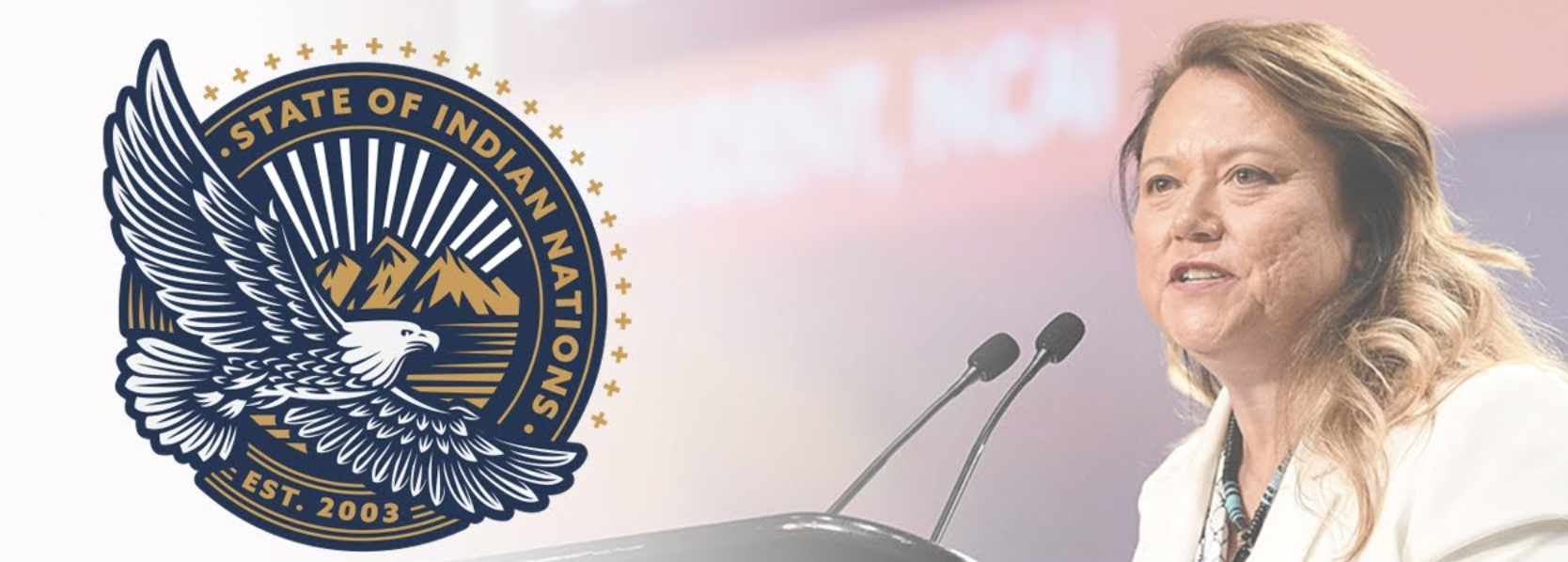
- Details
- By Native News Online Staff
WASHINGTON — For the first time since 2020, National Congress of American Indians (NCAI) President Fawn Sharp (Quinault Indian Nation) will deliver the State of Indian Nations in person.
The 2023 State of Indian Nations (SOIN) Address is set to take place live on Tuesday, Feb. 21, 2023, in Washington, D.C., at the Rasmuson Theater at the National Museum of the American Indian. Hundreds of tribal leaders and federal government officials will be in attendance.
Similar to the U.S. president’s annual State of the Union address, each year, the president of NCAI delivers a speech to tribal leaders, members of Congress, government officials, and the public. The purpose of the address is to provide an update on the issues important to Indian Country and a vision for the upcoming year.
After the NCAI president’s address, a member of Congress provides the congressional response. This year, Sen. Elizabeth Warren (D-MA) will give the congressional response.
During the past two years, the State of Tribal Nations address was given virtually by President Sharp because of the COVID-19 pandemic.
After the State of Tribal Nations address, the National Congress of American Indians will convene its 2023 Winter Session at the Capital Hilton in Washington, D.C., from Tuesday through Thursday (Feb. 21 -24, 2023).
Watch the live address at the link below tomorrow at 10 a.m. Eastern Standard Time.
More Stories Like This
Native News Weekly (August 25, 2024): D.C. BriefsNative Bidaské: The Illusion of Freedom and the Myth of America 250, Leonard Peltier Speaks Out
Monday Morning (March 2, 2026): Articles You May Have Missed This Past Weekend
Native News Weekly (March 1, 2026): D.C. Briefs
Scope Narrowed, Report Withheld: Questions Mount Over Michigan Boarding School Study
Help us defend tribal sovereignty.
At Native News Online, our mission is rooted in telling the stories that strengthen sovereignty and uplift Indigenous voices — not just at year’s end, but every single day.
Because of your generosity last year, we were able to keep our reporters on the ground in tribal communities, at national gatherings and in the halls of Congress — covering the issues that matter most to Indian Country: sovereignty, culture, education, health and economic opportunity.
That support sustained us through a tough year in 2025. Now, as we look to the year ahead, we need your help right now to ensure warrior journalism remains strong — reporting that defends tribal sovereignty, amplifies Native truth, and holds power accountable.
 The stakes couldn't be higher. Your support keeps Native voices heard, Native stories told and Native sovereignty defended.
The stakes couldn't be higher. Your support keeps Native voices heard, Native stories told and Native sovereignty defended.
Stand with Warrior Journalism today.
Levi Rickert (Potawatomi), Editor & Publisher


